The world’s largest vehicle battery manufacturer started their battery swap business three years ago and is ready to expand.
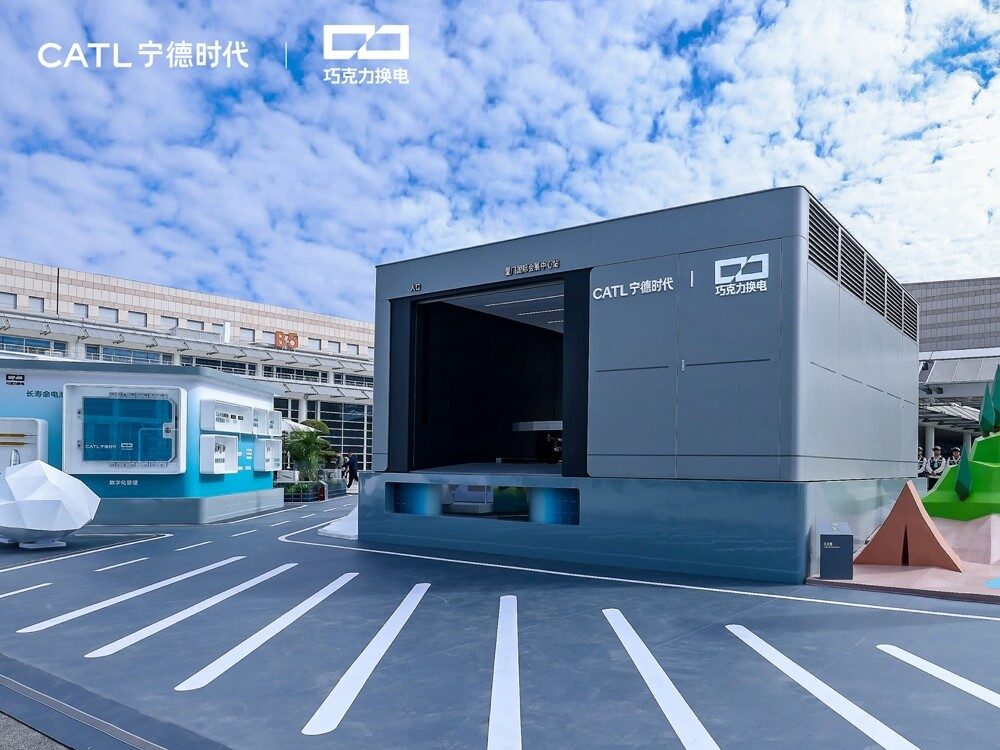
CATL, the world’s largest automotive battery maker, has revealed two standardised ‘Choco-SEB’ battery packs alongside plans to release ten models that use them together with their partners.
The new packs, named #20 and #25, are designed for use in smaller cars with the #20 destined for A0-class cars (cars with a wheelbase between 2.2 and 2.3 metres), and the #25 for cars in the A- and B-classes (cars with a wheelbase between 2.3 and 2.7 metres). We haven’t been able to find an example of a Chinese car with an A0 wheelbase, but a wide variety of cars above a Wuling Hongguang Mini fit into the A- and B-classes.
Each pack will come with a choice of LFP and NMC chemistries as well, with 42kWh LFP and 52kWh NMC pack sizes available in the #20 variant, and 56kWh LFP and 70kWh NMC packs available in the #25 variant.
These will offer ranges of 400 and 500km in the #20 batteries, and 500 and 600km in the #25 batteries.
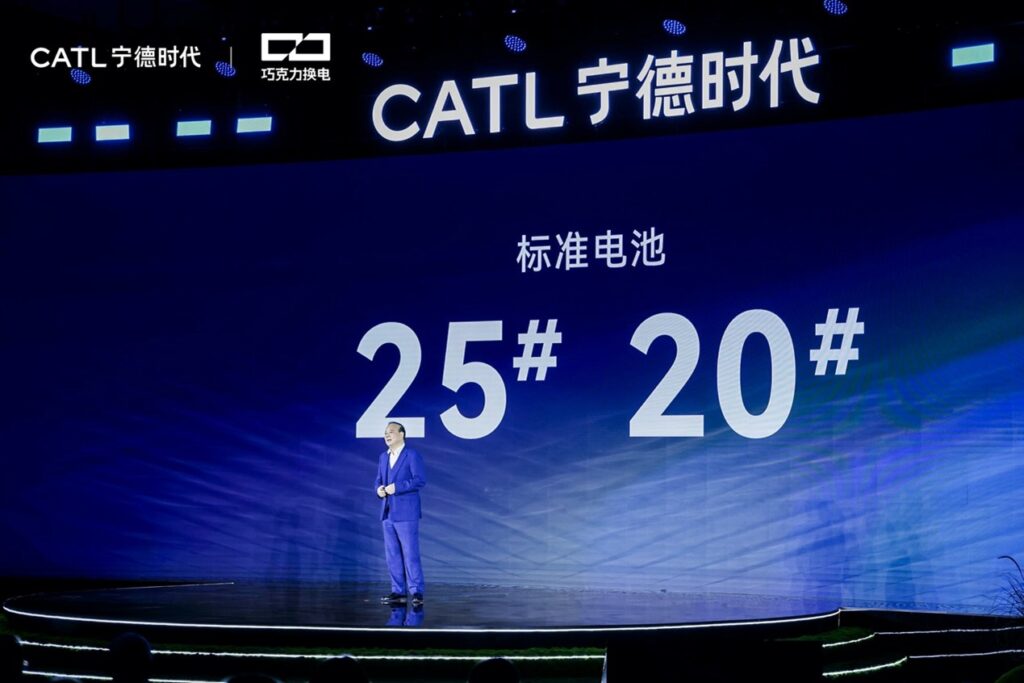
CATL had announced plans for a ‘choco’ battery pack before, which at the time stated users could swap in 1, 2, or 3 packs with each adding 200km of range, but the plan has seemingly changed with the new ‘Choco-SEB’ packs designed to be a single pack.
They will be available from CATL swap stations, of which the firm plans to have 1,000 in operation by the end of 2025 (for context, that’s 1,900 less than NIO operates across China today), and will work in vehicles with swap capability such as the Changan Oshan 520 which was revealed in a signing ceremony in November between Changan, CATL, and CAES, a subsidiary of CATL.
CATL’s ambition is to develop a standardised size of battery so that more brands will have access to the technology and jump on board. Currently, NIO is the most well-known name in battery swapping with both their NIO and ONVO brands both able to use NIO swap stations, but other brands like Aulton, which services MG and BAIC taxis among others, and SAIC brand Rising, as well as GAC, have their own swapping technology and stations.
CATL founder, chairman, and CEO, Robin Zeng, believes that by 2030, battery swapping, charging at home, and charging at public charging stations, will equally share the make-up of how the average EV owner charges their car.
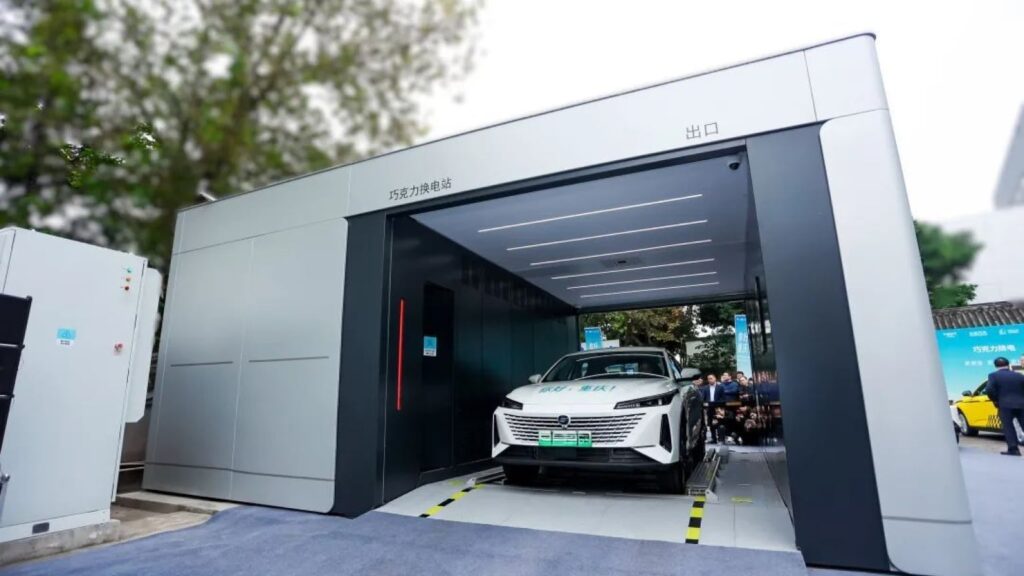
CATL’s battery swap service adopts the same rental format as NIO’s, whereby owners pay for the car but rent the battery monthly, which reduces the risk to the vehicle owner of owning a battery that may get faulty.
Pricing was announced at the event for the LFP batteries only, with the #20 LFP battery being rentable for RMB 369 (£40 / $51) for monthly mileage of less than 3,000km, or RMB 469 (£51 / $64) for unlimited mileage.
This price goes up to RMB 499 (£54 / 68) and RMB 599 (£65 / $82) for the #25 battery packs with the 3,000km or less and unlimited mileage options respectively.
More than 30 companies have already signed subscription orders for 107,500 of the Choco-SEB batteries, suggesting we will be seeing many existing brands revealing models with such technology in the future.
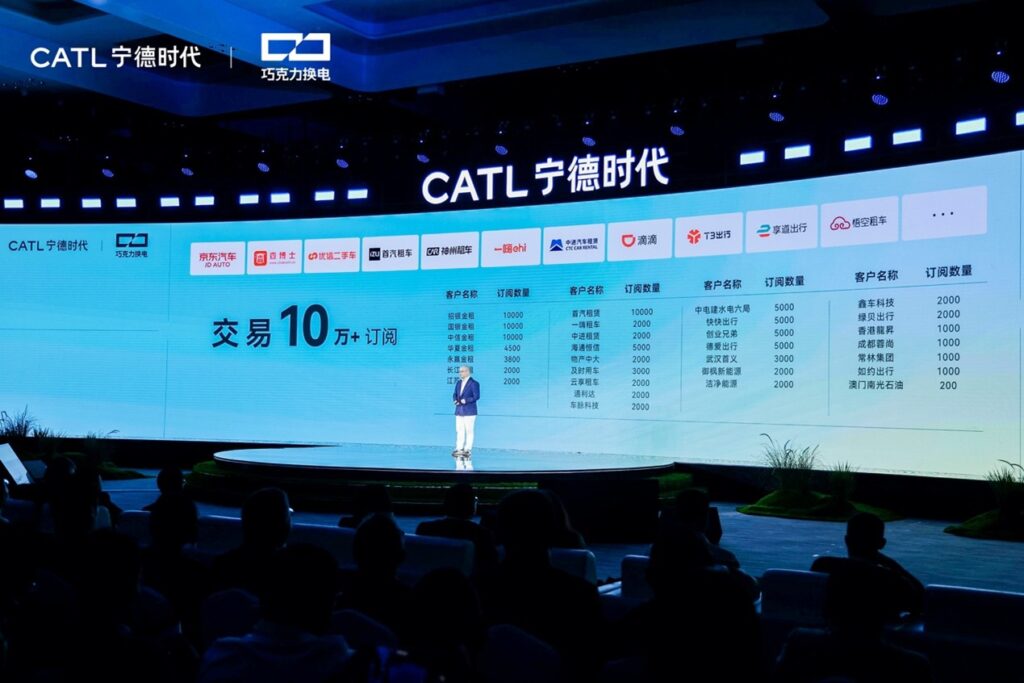
Most of these brands have probably already signed up to CATL’s battery swap alliance, including Changan and FAW, the makers of Hongqi, so expect these brands to be represented among the 10 models expected to enter the market with one in each of the next ten consecutive quarters.
Long-term goals for CATL are to rapidly expand their swap station portfolio, with 10,000 planned for the medium term, and as many as 30,000 in the long-term.

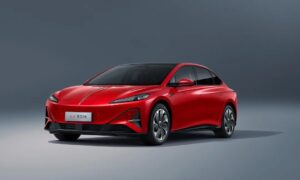
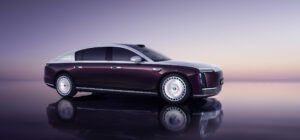
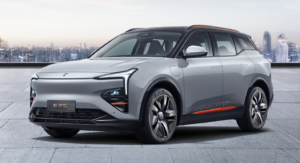
Smarter than NIO’s whole battery swapping, CATL allows only swap what you need